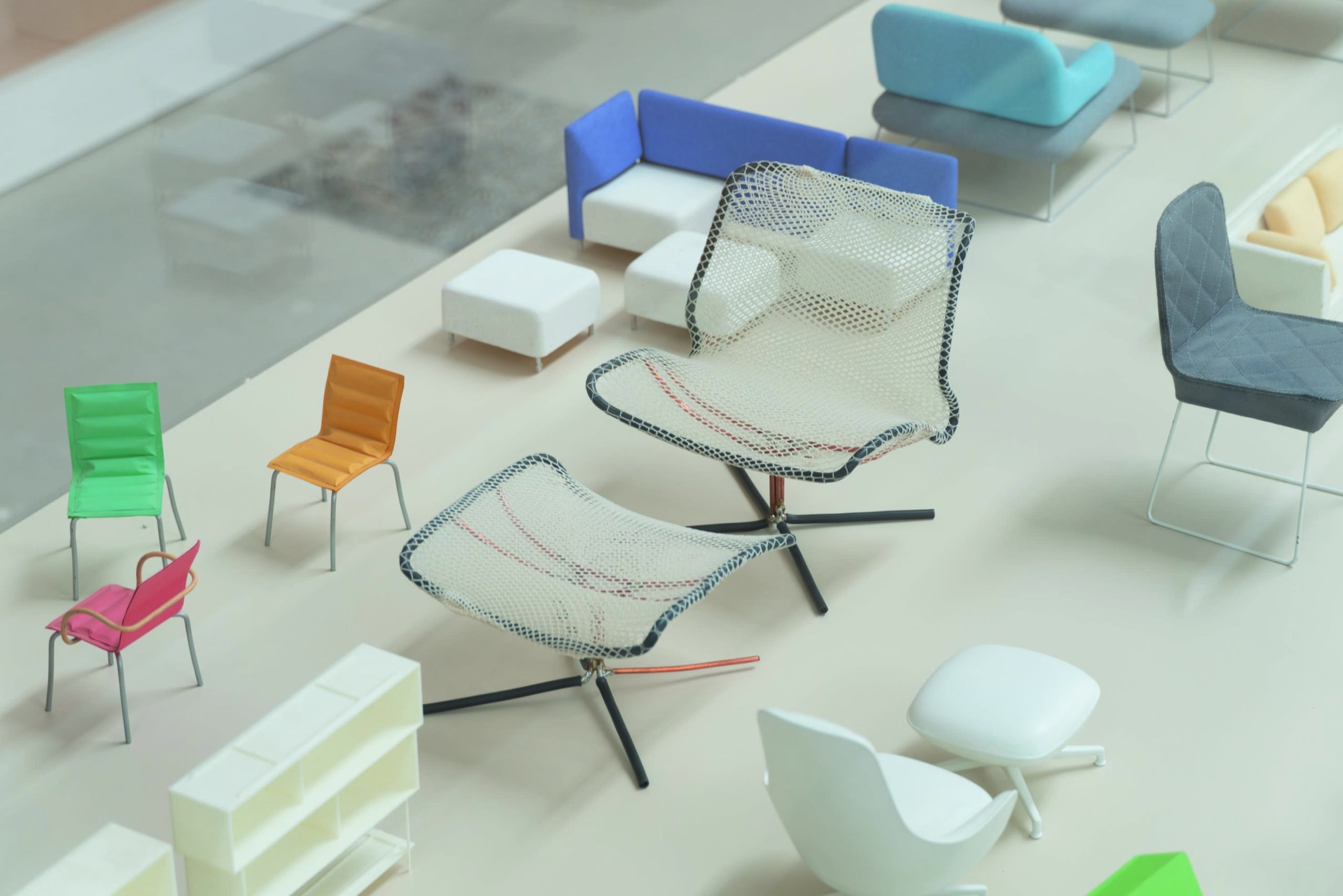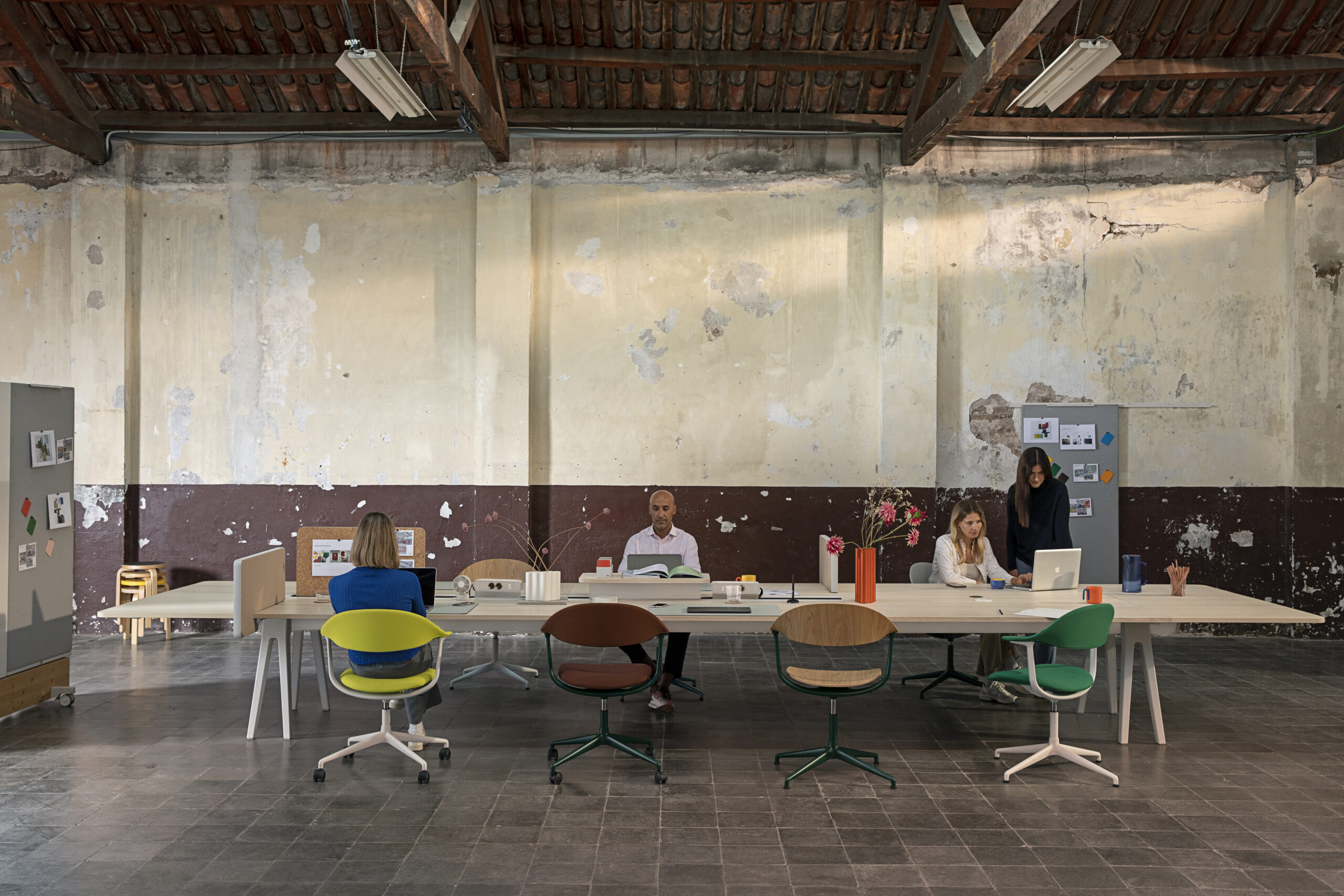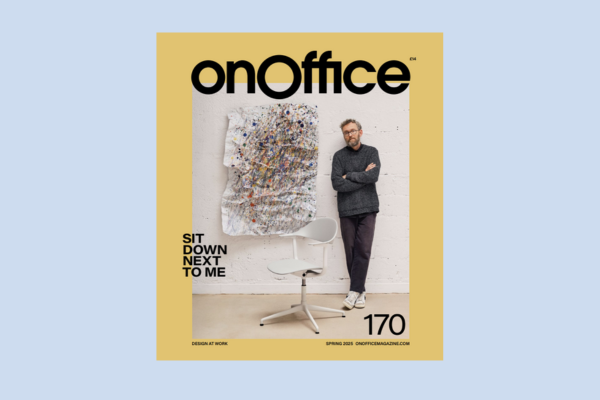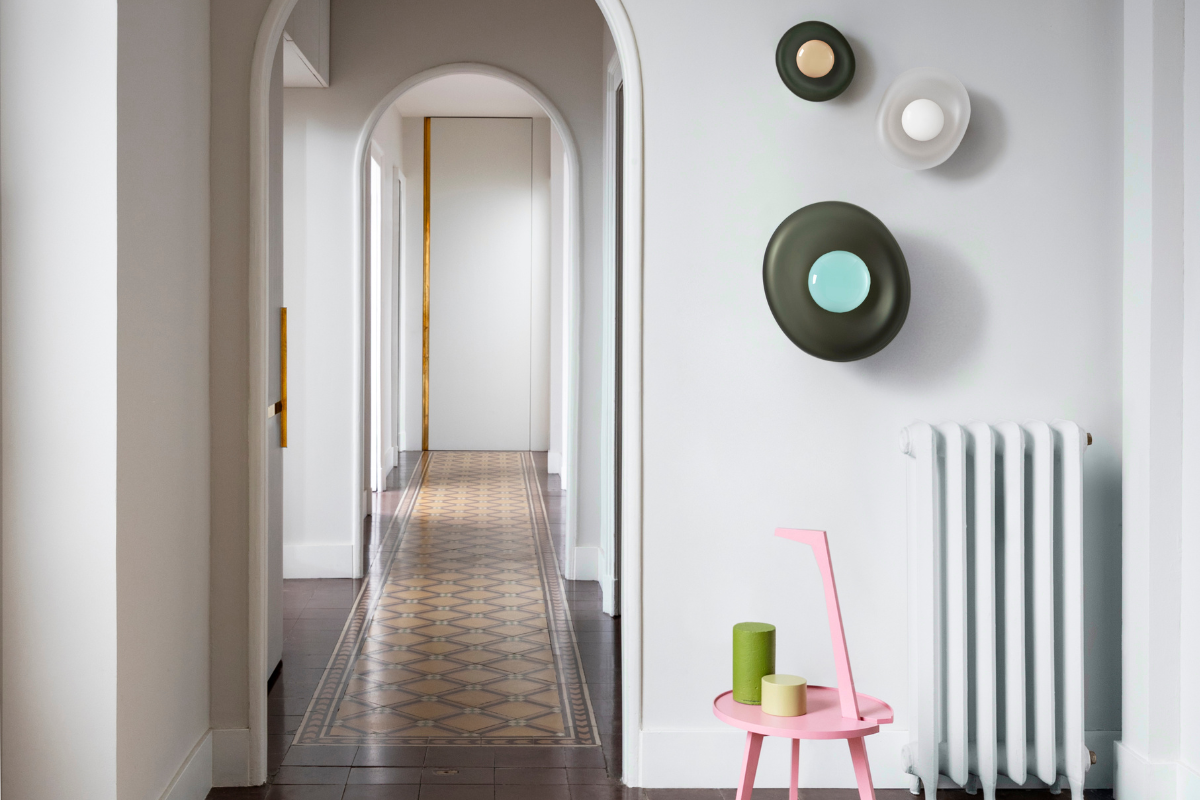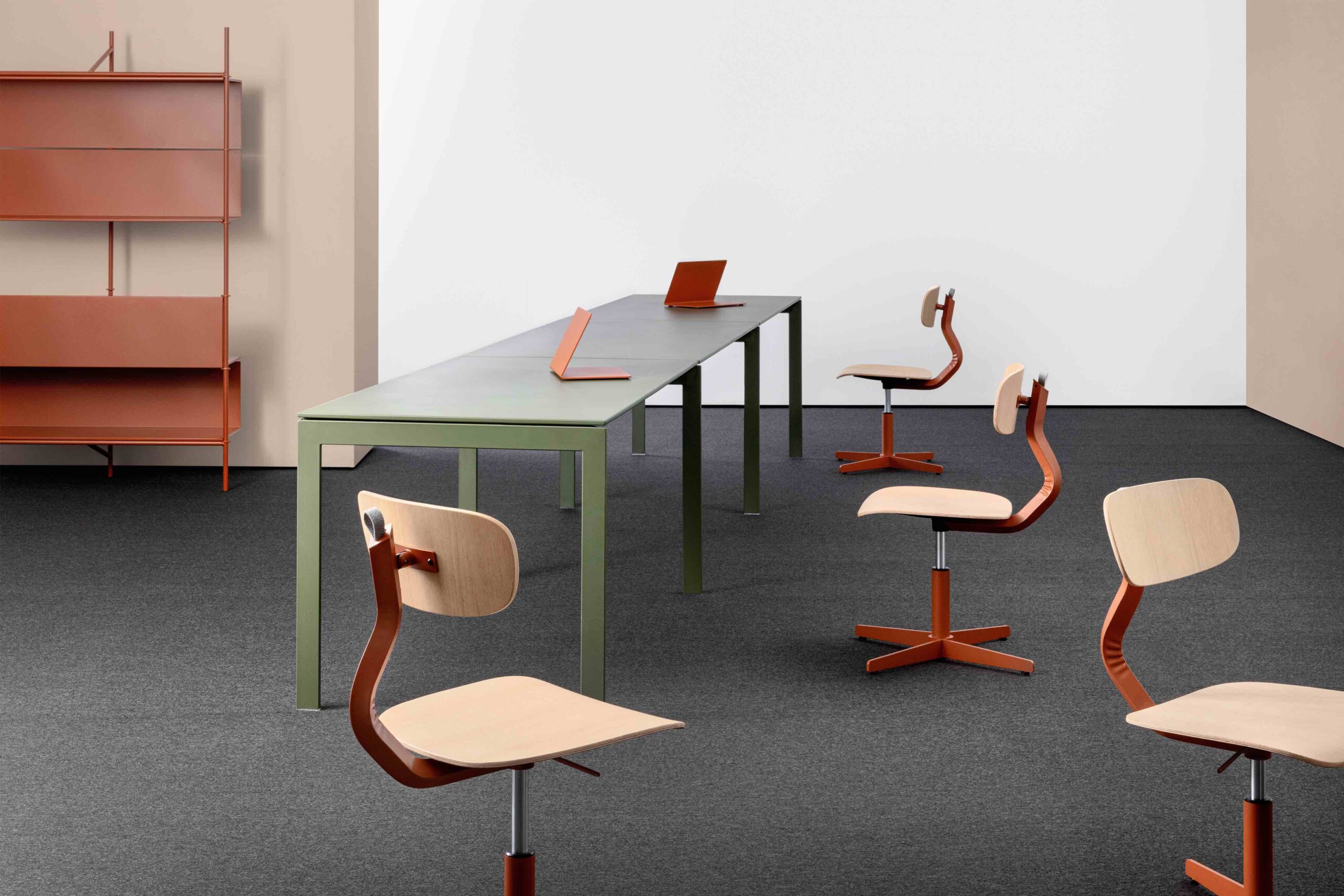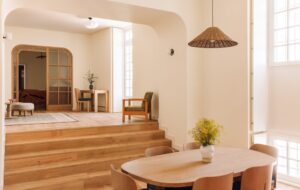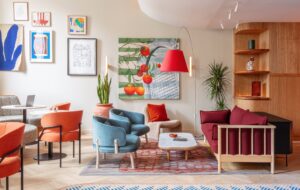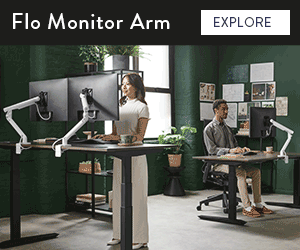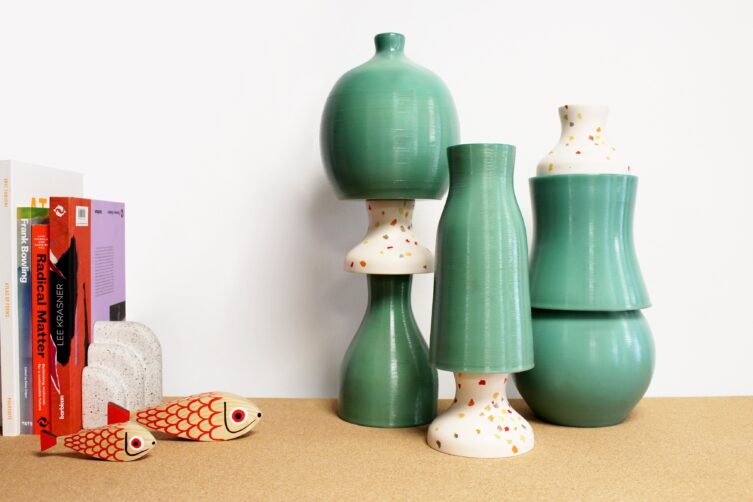
Turn up the Volume: Spared, an offshoot of Brighton-based studio Volume Creative, diverts plastic waste from landfill to produce idiosyncratic and colourful furniture and objects for homes and workspaces
The UK has a landfill problem. News headlines read of historic landfills polluting the sea; contaminated recycling sent to landfill; illegal amounts of waste in landfills. Increasingly, dangerous greenhouse gases from landfills are polluting our air and leachate, a toxic liquid caused by landfill waste, is contaminating our land.
Despite the steady increase in landfill tax, first established in 1996, commercial waste, which makes up roughly 20% of the UK’s total waste, has been the fastest growing waste sector in the past 10 years – and has been accompanied by an increase in waste fraud and crime.
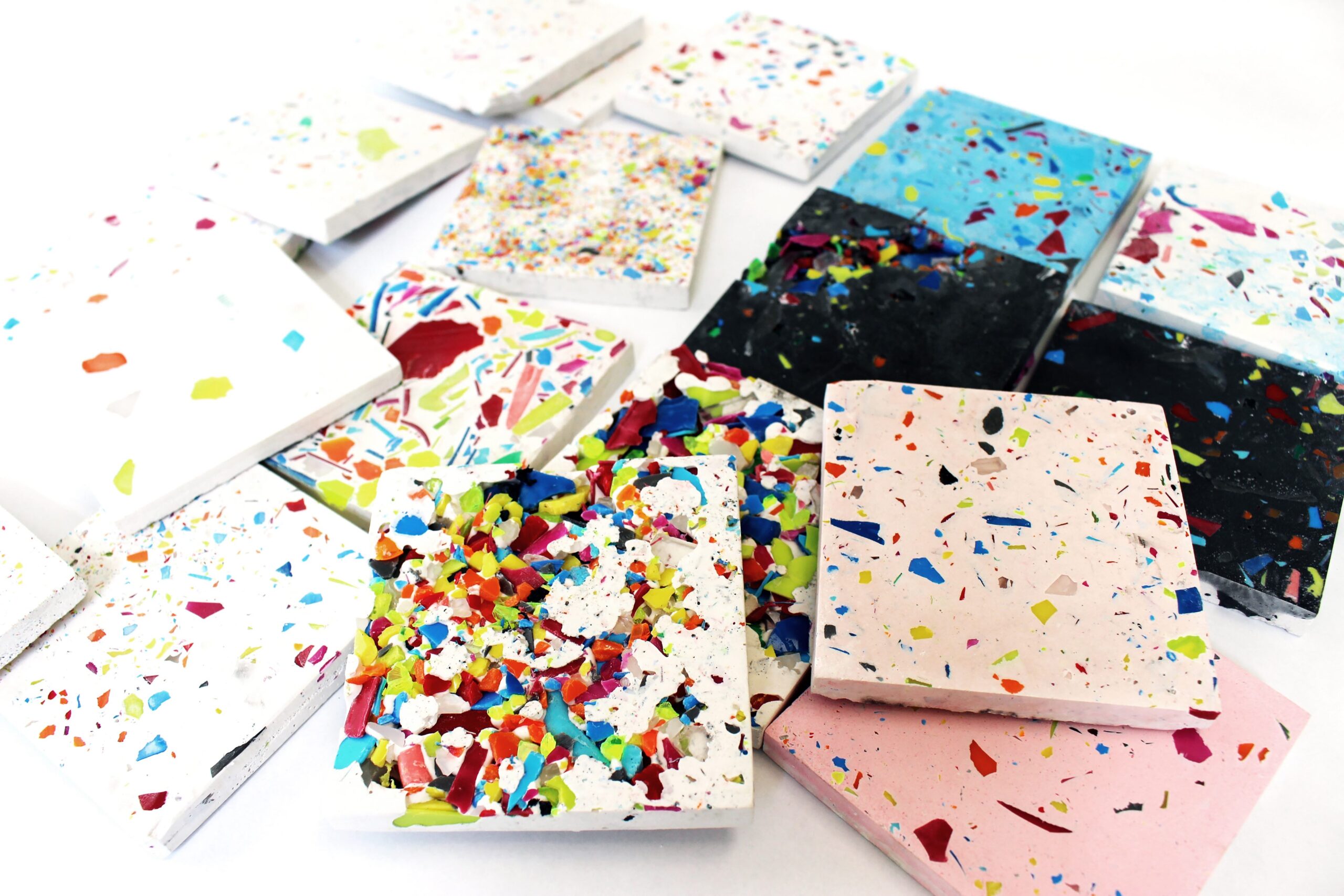
What’s clear is that businesses need to stop sending waste to landfill and start getting creative. Could this waste be a useful material resource and could it be channelled into something positive, useful and beautiful? The answer is yes, but where to begin?
Brighton-based interior design studio Volume Creative has stepped in to provide this vital link of knowledge, skills and creativity. Originally founded in 2015, the studio launched a new sister arm, Spared, in 2021, to collaborate directly with brands it was working with, to divert their waste from landfill and into useful design objects – from furniture to lighting, decorative objects or simply whatever’s needed.
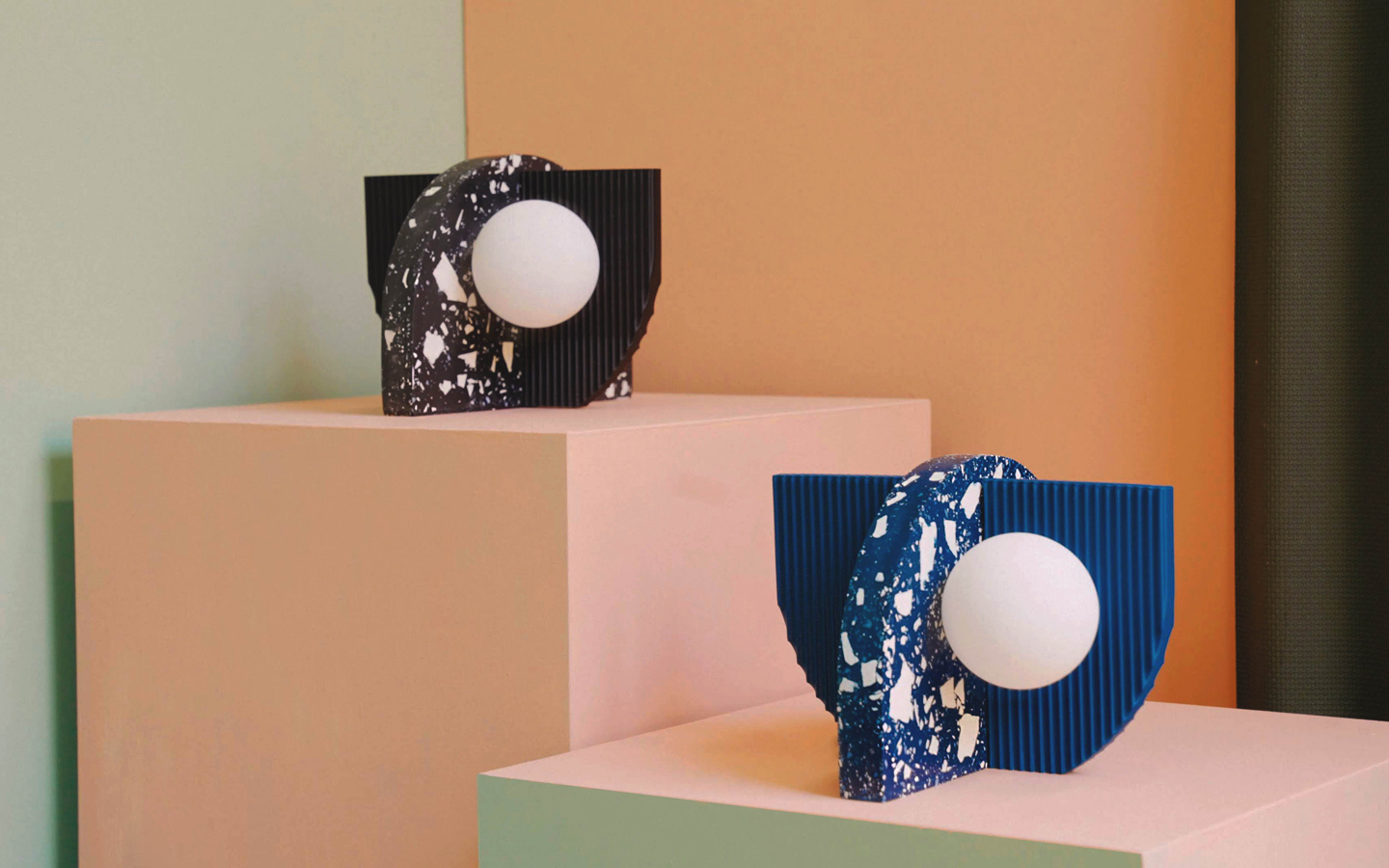
Oyster shells from Whitstable have become smooth countertops at Fortnum & Mason; old CDs and DVDs, reception desks for a residential development at an old ice-cream factory in Camden. Spared has embraced all types of waste from post-consumer plastic to food waste and construction waste.
Transforming this waste has required an experimental process for Spared at its Brighton workshop. “There’s a level of R&D that we have to go through to say: yes, we can create what you would like to create,” says Kate Brewer, partner at Volume Creative. In each case, Spared aims to combine 60-70% waste material using unique composites which are all bespoke depending on the project.
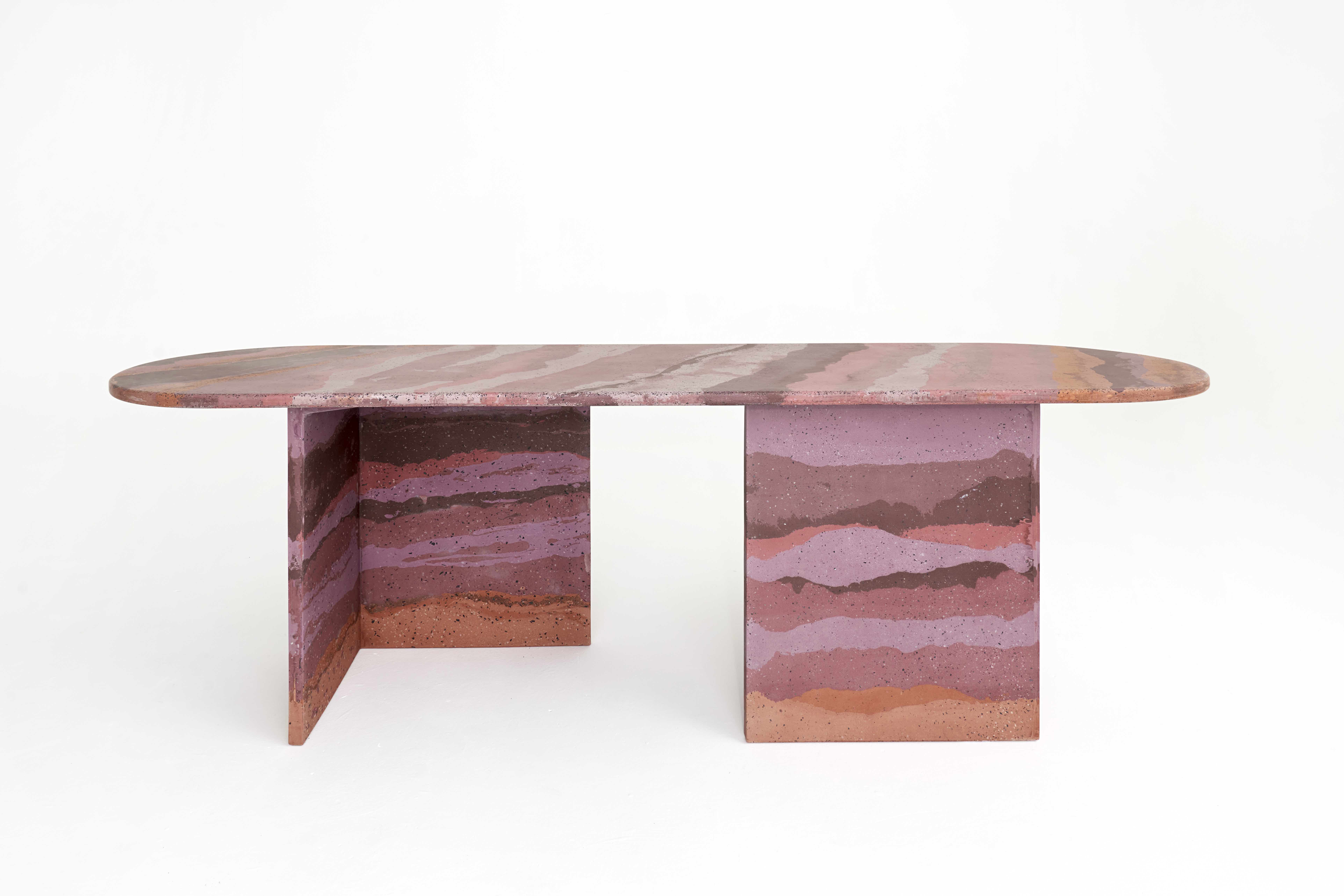
This resourceful and hands-on approach is embedded in the founding ethos of Spared. The four female Volume Creative partners, founder Callie Tedder-Hares, Emma Lally, Kate Brewer and Francesca Henley, combine skills across product design, retail and hospitality interiors. They were acutely aware of waste generated by their bespoke interior projects and this conflated with their shared desire to start designing products in-house.
With projects on hold during the pandemic, they took to their back gardens to explore the potential of household waste as material, leading to the launch the first Spared collection, Achromatic, a range of organic decorative vessels made of post-consumer waste.
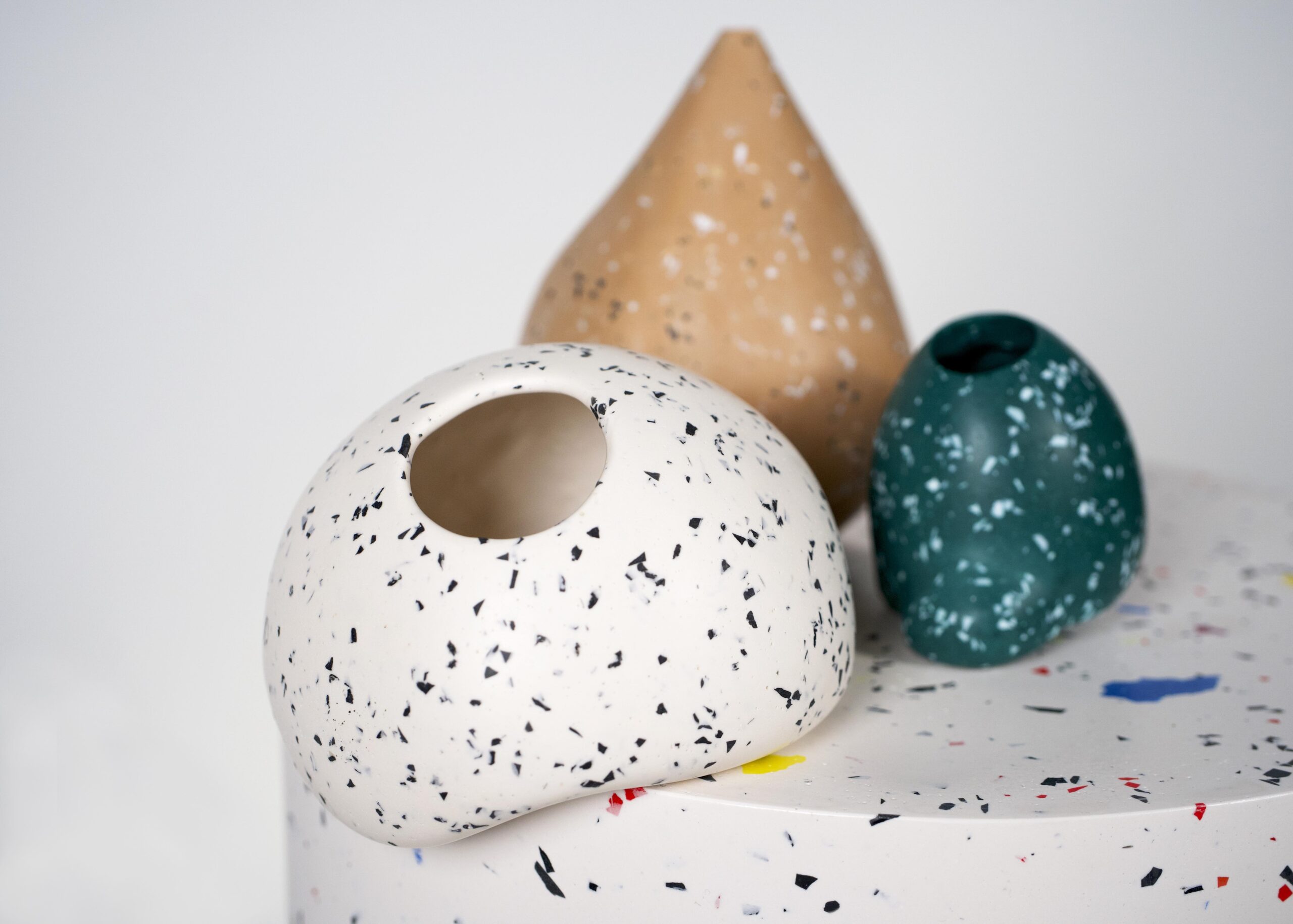
“We’re constantly bringing in plastics from our own homes that can’t be recycled,” says Brewer. Because the thing is that while most plastics can be recycled, many cannot be recycled in our household waste often because they combine multiple plastics or the plastics are chemically combined with other materials. Some of these culprits include crisp packets, salad bags, plastic-laminated packaging, plastic bags, toothpaste tubes and children’s toys – which pretty much all end up in landfill.
But the reality is that we can’t rely on recycling, as mentioned before, household recycling contaminated by uneducated or lazy people ends up in landfill anyway. Plastics are consistently ending up on our beaches and in our oceans and breaking down into microplastics, which have been discovered in 90% of global table salt brands, in our fish, seafood and even fruit and vegetables – the impact of which on human health through ingestion is unknown.
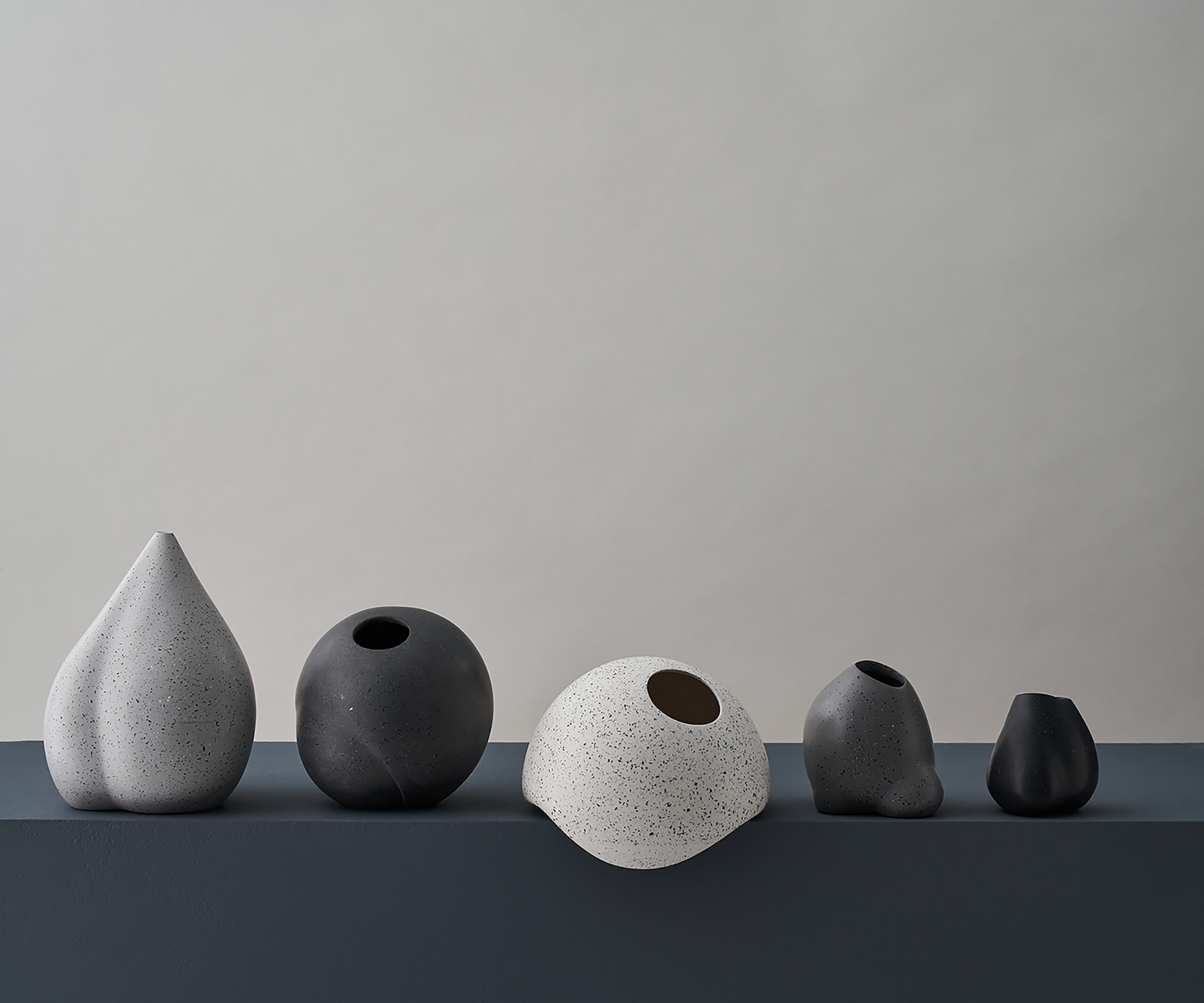
“Anything that we can take out of landfill is a benefit,” says Brewer. “But what we’re aiming for is to create a circular material, something we can actually recycle ourselves after its use and reuse it in something else. Our goal is to offer this kind of circular design.”
Spared is pioneering a collaborative format that relies on commercial clients stepping up to embrace the challenge. Brewer believes that as brands are becoming more conscious, there is great potential here for creativity, sustainability and innovation. “If a brand has a mindset and ethos of sustainability, we hope this kind of thinking will seamlessly filter through all of their activities. Conversations about carbon footprints and where materials are sourced from are becoming more prominent and naturally that should feed into their physical spaces.”
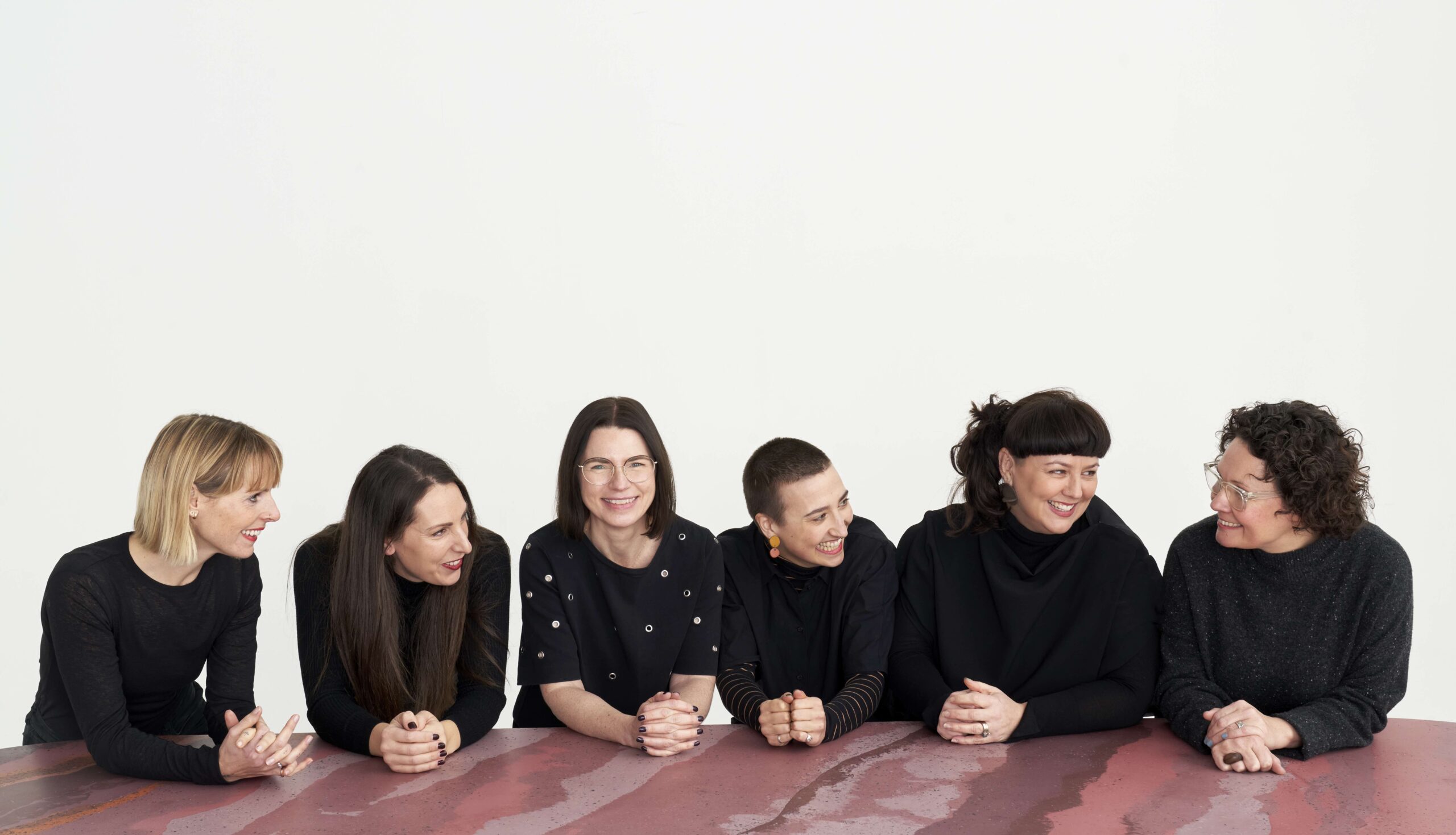
The physicality of Spared products cannot be ignored – the silky smooth texture, the shapes of the coloured flecks and the fluid forms inspired by modern design, qualities that are synonymous with craft: “Everything we create is handmade and designed in an elevated and sophisticated way. It has the strength of an artisanal piece, but a strong commercial appeal too,” says Brewer.
She sees how people are drawn to the tactility of the material; they become curious and excited once they discover the story of the genesis and production of the products. “Storytelling is hugely important to what we do,” says Brewer – and this kind of storytelling is gold dust to brands today with consumers more ethically invested than ever before. So next time you throw something in the bin, have a think: what story does it tell about you today, and how does it end?
Images by Volume Creative, Georgia Quinn, Mark Cocksedge
As featured in OnOffice 163, Summer 2023. Read a digital version of the issue for free.


